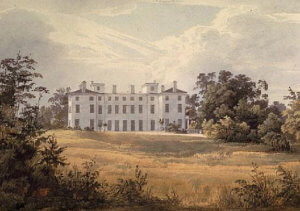Richard F. Veit, Ph.D., professor of anthropology and interim dean of the School of Humanities and Social Sciences, will present “A Monument to Fallen Royalty: Rediscovering Joseph Bonaparte’s Point Breeze Estate In Bordentown, New Jersey,” on Feb. 10 at 7 p.m. The event, which is co-sponsored by Pennington Public Library, Hopewell Valley Historical Society, and The Hopewell Museum is free, but registration is required.
Recent archaeological excavations in Bordentown, New Jersey have unearthed the remains of Joseph Bonaparte’s palatial estate, Point Breeze. Joseph, the elder brother of Napoleon Bonaparte and former King of Spain and Naples, fled to the United States in 1815. He lived in New Jersey from 1816 until 1839. During this period he built two palatial homes, laid out a 1900-acre picturesque landscape, and acted as an unofficial cultural attaché. His home was a center for French refugees in America, and his library and art collections were the largest in the country. At Point Breeze, he entertained many of the leading intellectuals, politicians, artists, and military figures of the day.
Bonaparte’s passion was landscape architecture, and on his property he created one of the first purposefully-designed picturesque landscapes in America. Archaeological excavations have revealed the remains of Joseph’s first mansion and recovered an intriguing collection of artifacts that provide a unique glimpse of the lifestyles of the rich and famous in 19th century New Jersey.


